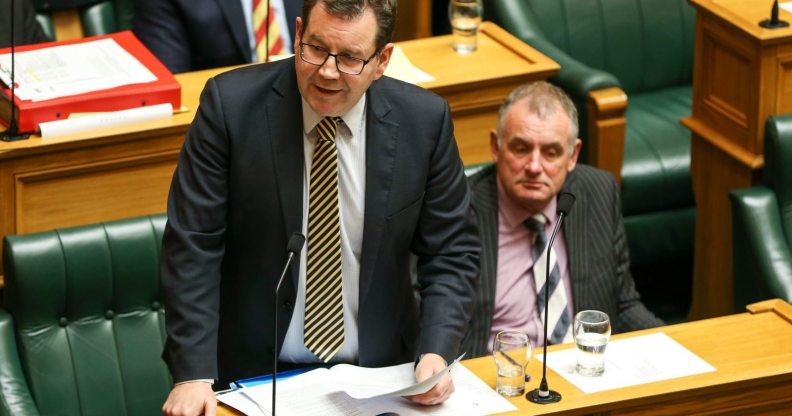Men convicted of gay sex offences in New Zealand to have convictions erased

(Getty)
New Zealand is set to unanimously pass a law allowing for convictions of men for homosexual ‘crimes’ to be expunged from the public record.
Nearly 1,000 men were found guilty of homosexual offences between 1965 and the decriminalisation of homosexuality in 1986.
They will now be able to apply for those convictions to be deleted. There is also the option for a family member or other representative to do this if the person with a conviction has died.

New Zealand Prime Minister Jacinda Adern (Getty)
It is expected that Parliament will make a second formal apology to these men, though there seems to be no prospect of compensation.
In total, 138 men were handed a prison sentence for homosexual offences, while the others were given fines or community-based sentences.
Parliament has seen a host of emotional speeches throughout the legislative process for this bill.

(Getty)
Grant Robertson, the gay Finance Minister, told his fellow lawmakers: Let us be clear. The illegality of homosexuality, the arrests and the imprisonments, and the fear of that happening did not just ruin lives and destroy potential; it killed people.
“Hundreds, or possibly thousands, of lives have been lost because men could not bear the shame, the stigma, and the hurt caused by this Parliament and the way that society viewed them as criminals.
“It is for all of that that we must apologise, as a Government and as a Parliament, to those men who are still alive and to those who have passed on and their families,” he continued.
“To those families, it is important that you take the opportunity afforded by this legislation to give dignity in death to your relatives that this Parliament did not allow them in life.

National MP Amy Adams (Getty)
“I also want to speak today to those gay men who were not convicted in this period, but, rather, lived through it in the face of discrimination, in the face of hate, and in the face of stigma.
“We also owe all of you an apology. Whether you were convicted or not, this law was wrong and made your lives worse.”
The move came about because of Wiremu Demchick, a 26-year-old IT developer who petitioned Parliament in 2016 for an apology and expungement after gathering more than 2,100 signatures.

(Getty)
Last year, as the bill was being introduced to Parliament, lawmakers unanimously supported an apology from the House.
It read: “That this House apologise to those homosexual New Zealanders who were convicted for consensual adult activity, and recognise the tremendous hurt and suffering those men and their families have gone through, and the continued effects the convictions have had on them.”
But last week, Minister of Justice Andrew Little told Parliament that compensation would be “just too hard” to work out.

New Zealand Prime Minister Jacinda Arden at Pride 2018 (Getty)
“The difficulty with compensation is that there will be different circumstances for different people that might call for varying levels of compensation, and that then makes it very complex and very complicated,” he said.
“And so the decision was made not to provide for compensation. It would be equally unfair to say: ‘Right. Everybody gets the same amount.'”
Last year, the UK Government pardoned thousands of men convicted of historic gay sex offences.

(Getty)
Germany also rescinded the convictions of 50,000 men sentenced for homosexuality under a Nazi-era law.
The legislation set aside 30 million euros to compensate an estimated 5,000 convicted men who were still alive.
The Canadian government last year allocated $145 million to settle compensation claims from people persecuted for being gay.

(Getty)
The country’s Prime Minister Justin Trudeau also apologised for the country’s historic approach to the LGBT community, which saw gay people endure purges for decades.
Scotland is also in the process of passing legislation which will pardon those convicted of historical gay sex offences.

